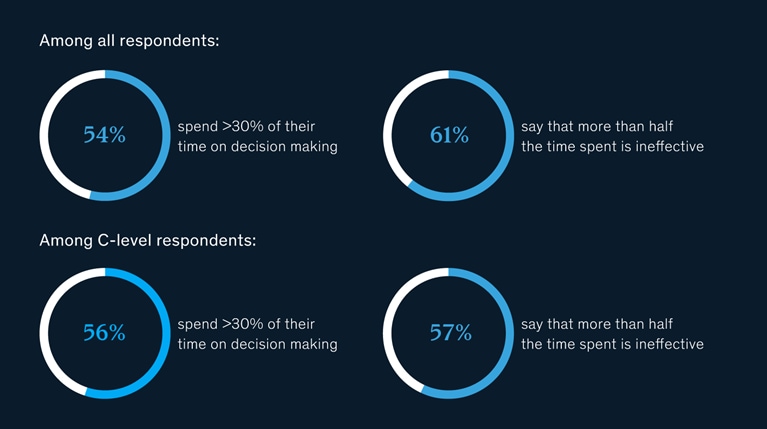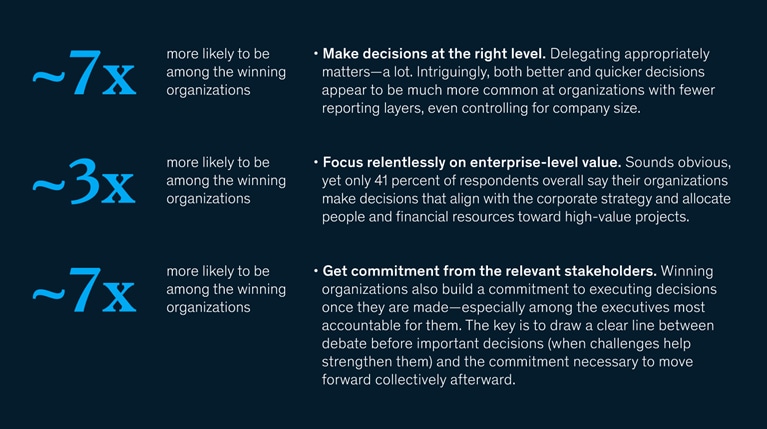Say that the company, business unit, or function you lead faces an important decision requiring input from across the organization. Time, you think, for some trade-offs: a good decision means involving the right people (sometimes a lot of people) and sacrificing speed; a faster decision might not be quite as good—but might be “good enough.” Either way, experience tells you that in decision making, speed comes at the cost of quality.
Except that it doesn’t. Or rather, it doesn’t have to.
Our survey of more than 1,200 respondents challenges this and other assumptions about decision making, while underscoring the frustrations many executives feel about it. One such finding: decision making uses up a lot of executives’ time, and much of it is spent ineffectively.

Nonetheless, our findings identified a group of respondents who say their companies make high-quality decisions quickly, execute them quickly, and then enjoy higher growth, overall returns, or both than their counterparts do.1 How? In addition to tailoring their approach to suit the type of decision at hand, such winning organizations appear to follow these foundational practices:

Exploring the organizational dynamics around this last finding can help to dispel the preconceived notions many executives have about balancing the speed, quality, and execution of decisions. To wit: while big-bet and cross-cutting decisions benefit from harnessing the diverse thinking inherent in a bigger group, this need not mean sacrificing speed. The trick is to involve people—substantively—but not necessarily to give them a vote or veto. With the right mix of processes and practices, decision makers can involve the right people, build consensus, and secure the commitment needed to ensure speedy execution.


